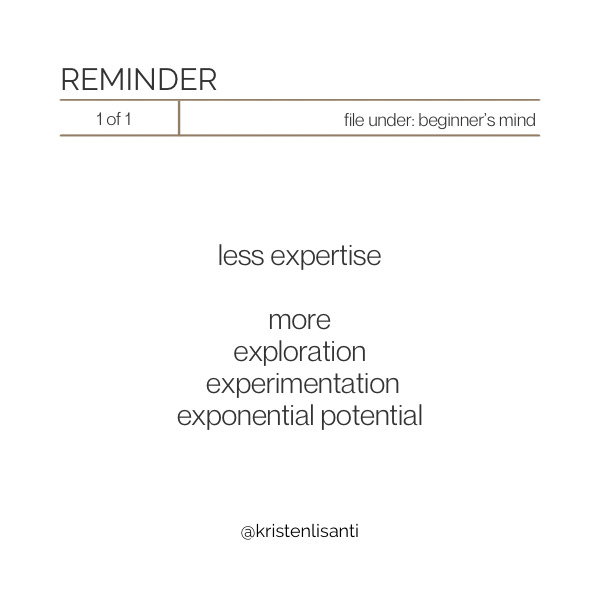Against expertise
The case for beginner’s mind
Three conversations with three leaders in three different companies this week:
#1: I checked in with a leader who recently started a big new job. “It’s going well so far,” she told me, “but I don’t have all the answers for my team just yet.”
Try to hold onto that, I urged.
#2: A veteran executive said about a talented new colleague, “She’s not remotely curious about the team she’s joined. She thinks she knows better than anyone, and no one wants to work with her.”
I know how this story ends, I thought.
#3: A leader crafting her own people and culture role asked me about mine, “And what is your area of expertise?”
None whatsoever, I laughed.
In the comments: When is expertise more trouble than it’s worth? What is the alternative?
This week
Consider the question I was asked: “What is your area of expertise?”
Now consider that the answer to this question might be less important than how it feels to answer it.
Do you have a definitive answer? Does it seem like you’re supposed to?
And if you do, how do you hold your expertise? Do you defend it? Insist upon it?
How does this expertise feel in your body? Is it nourishing, bringing fulfillment, ease and energy? Or does it feel scarce and slippery, as if you can never have enough?
Is there room in your expertise for what the Zen Buddhists call “beginner’s mind”?
How might it feel to not know the answer? To see things fresh? To meet people where they are? To make room for asking and guessing, testing and learning?
Given the infinite complexity and accelerating change in our world and in your work, which is the better bet?


